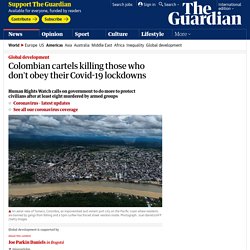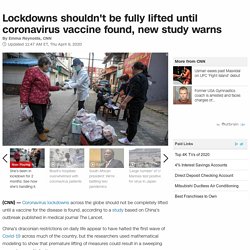

Spring school closures tied to drastic decrease in Covid-19 cases, deaths. When state officials were deciding whether to shutter their schools back in March, the evidence they had to work with was thin.

They knew kids easily catch and spread influenza — and that school holidays and closures have helped slow its spread. But they weren’t sure if the same was true for Covid-19. Now, a study published Wednesday in the Journal of the American Medical Association shows that closing all of a state’s schools was associated with a drastic decrease in both Covid-19 cases and deaths. And the point at which officials made that call mattered: Those states that adopted the policy while few people were testing positive saw a correlated flatter curve of cases. “It’s a nice study. Advertisement It also still isn’t clear how likely kids of different ages are to get and pass on the virus, which makes it hard to tease out the reasons why school closures might have helped to shift the outbreak.
The findings arrive amid a furor over school reopenings. Coronavirus: au Royaume-Uni, fermer les bars pour ouvrir les écoles? Le coronavirus trouve dans les réunions familiales un combustible parfait. (PDF) Association of country-wide coronavirus mortality with demographics, testing, lockdowns, and public wearing of masks (Update June 15, 2020). Colombian cartels killing those who don't obey their Covid-19 lockdowns. Drug cartels and rebel groups are imposing their own bloody coronavirus lockdowns across Colombia – and killing those who do not obey, according to a new report by Human Rights Watch (HRW).

At least eight civilians have been murdered by the armed groups, some of them holdovers from Colombia’s half-century civil war, which are using Whatsapp chats and pamphlets to warn citizens of the lockdowns in the rural areas where they operate. In Tumaco, an impoverished and violent port city on the Pacific coast, residents are banned by gangs from fishing, limiting their ability to earn money and food. A 5pm curfew – far stricter than the measures imposed by the government – is also forcing street vendors inside.
Across the country, violent gangs are stopping people from leaving their homes at all, even when sick, according to humanitarian workers cited in the report. In two provinces, Cauca and Guaviare, armed groups have torched the motorcycles of those of those who ignored their restrictions. Comment le Luxembourg est devenu un laboratoire d’une gestion efficace du coronavirus. Un plan contre la pandémie, établi dès le mois de janvier, quand peu de pays européens se souciaient du risque ; 50 masques distribués à chaque habitant et des commandes pour 69 millions au total ; des centaines de chambres d’hôtel offertes aux travailleurs frontaliers pour éviter la panne du système hospitalier ; un projet en cours de test généralisé de la population.

Un puissant modèle prédictif du MIT évalue la propagation du coronavirus en fonction du confinement. Lockdowns shouldn't be fully lifted until coronavirus vaccine found, new study warns. China's draconian restrictions on daily life appear to have halted the first wave of Covid-19 across much of the country, but the researchers used mathematical modeling to show that premature lifting of measures could result in a sweeping second wave of infection.

Authorities ended the 76-day lockdown of Wuhan in Hubei province on Wednesday, as the city at the original epicenter of the coronavirus crisis emerges from the deadly outbreak that is now raging across the globe. Some restrictions will remain in place, however, with officials conscious of the risk as trains and tourist sites were packed across the country. He cautioned that the speed of infection would rise unless governments ensured restrictions were lifted slowly and transmission was closely monitored.
The research could be critical as countries across the world -- some which have only had lockdowns in place for a few weeks -- consider how best to ease restrictions to get their economies moving again. Andrew J. Instead of just flattening the COVID-19 curve, can we 'crush' it? Amid the coronavirus pandemic, many Americans have embraced the idea of "flattening the curve," or slowing the spread of the virus over a number of months so that fewer people become infected and need health care at any given time.

A key assumption of this strategy is that around the same number of people will eventually be infected with COVID-19, but just over a longer time period. Many models predict this period, which would require intermittent lockdowns, could last well over 18 months. But one veteran public health scholar says we can take a different path to more swiftly and forcefully bring an end to COVID-19. "The aim is not to flatten the curve," Dr. Harvey Fineberg, president of the Gordon and Betty Moore Foundation, a philanthropic organization in Palo Alto, California, and past president of the U.S. Fineberg argues we can defeat COVID-19 in just 10 weeks if we take a "concerted and determined" approach.
Coronavirus science and news Six steps to victory Major challenges Dr. Dr.